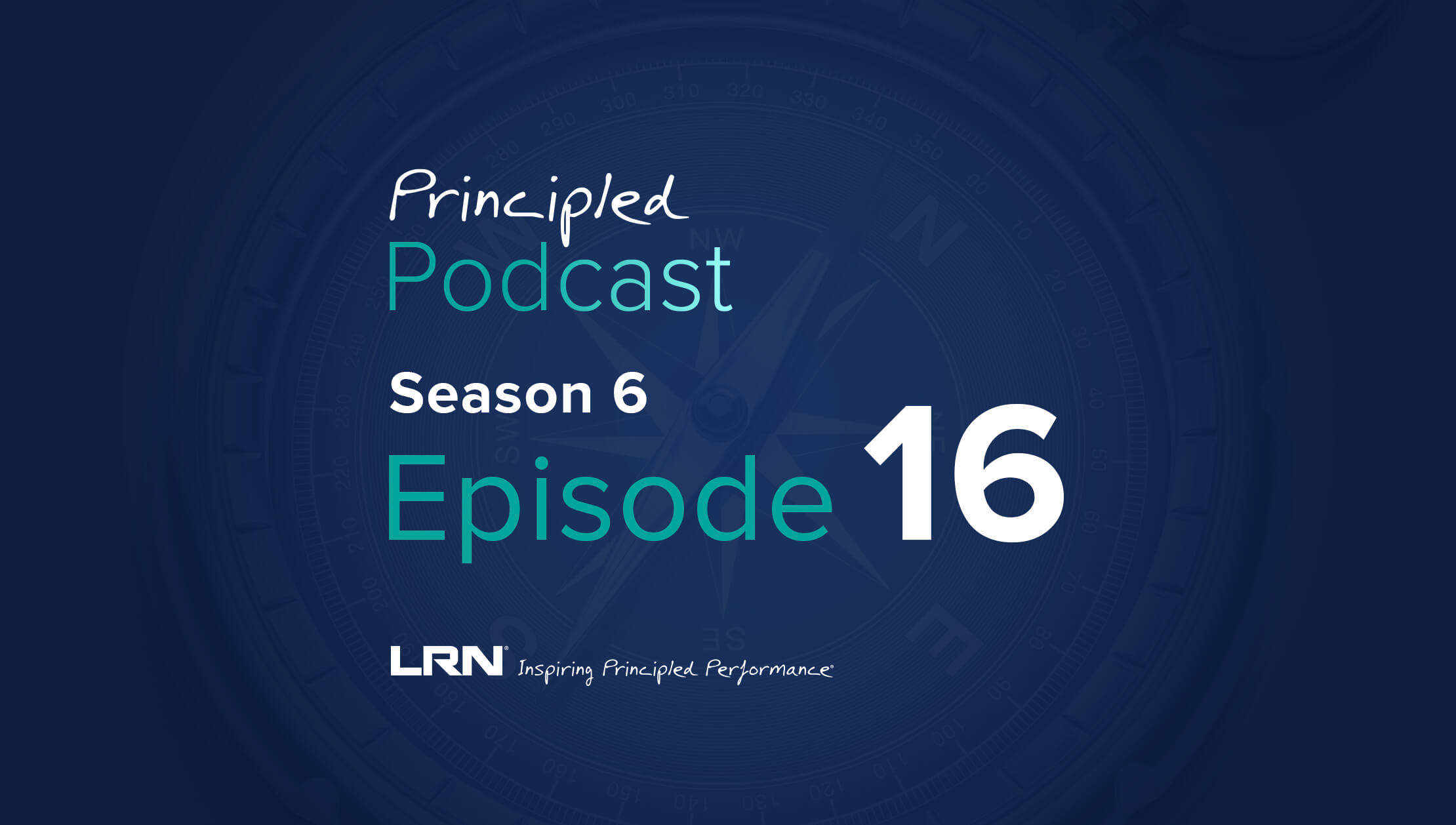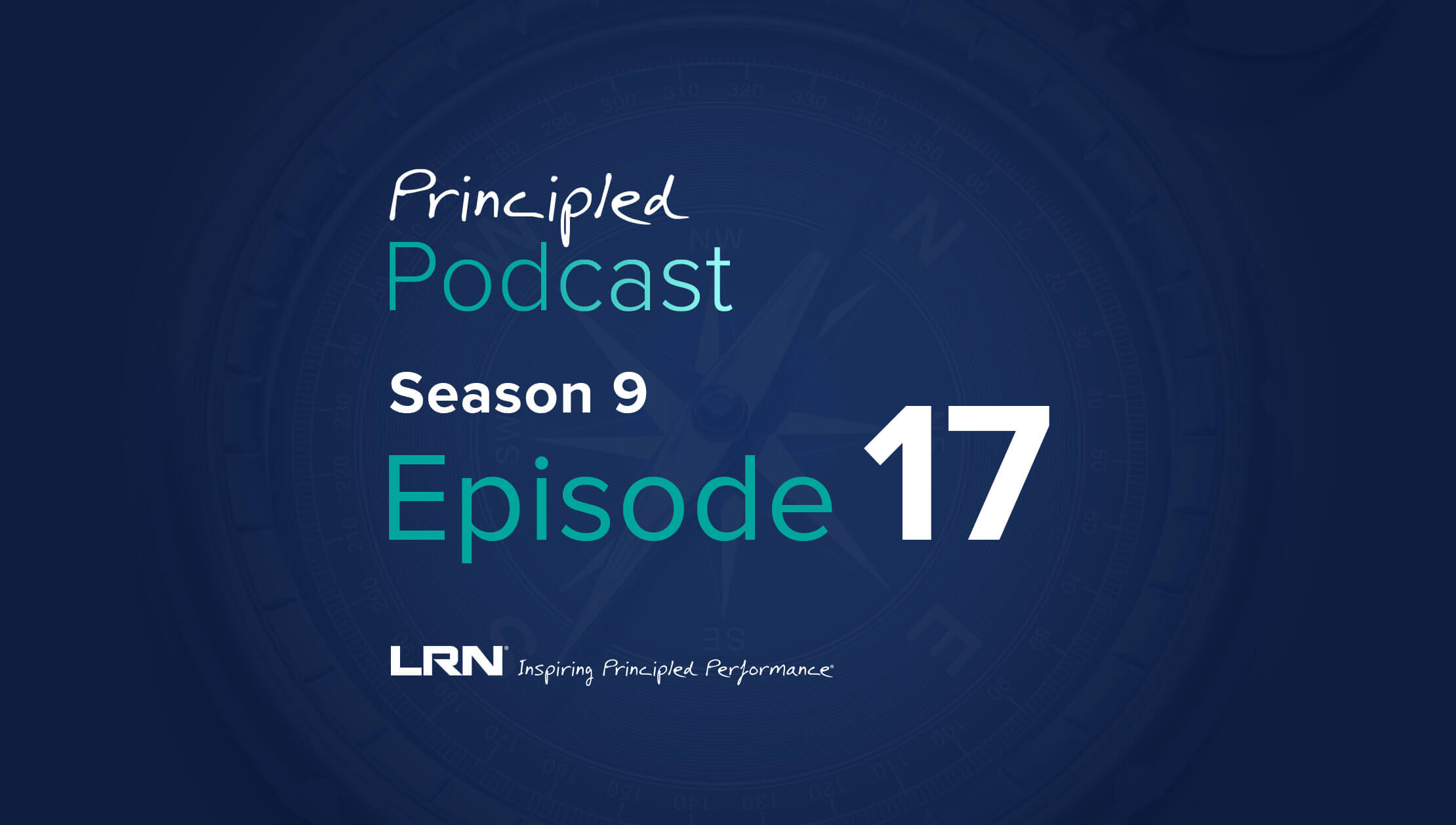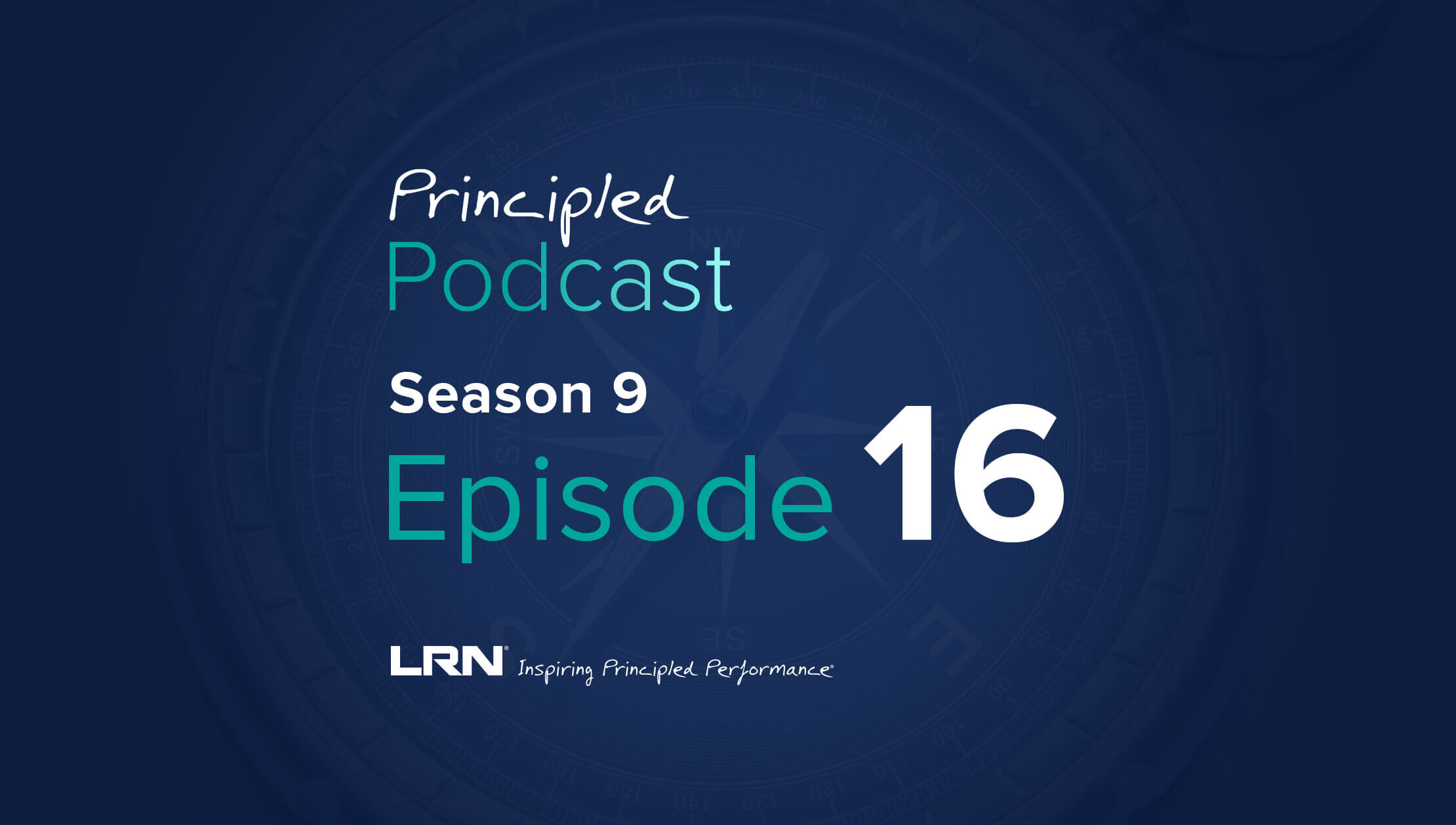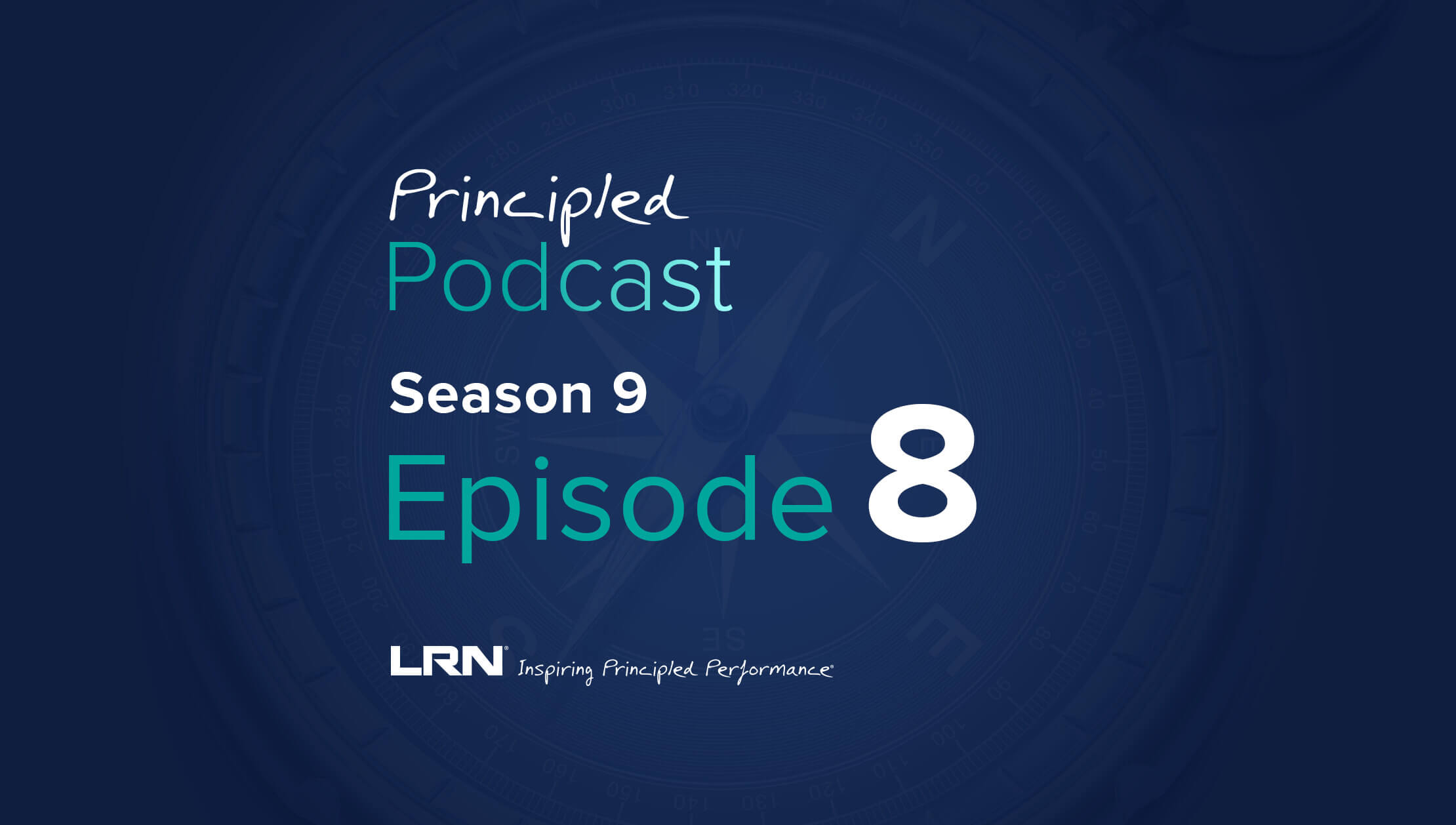What you'll learn on this podcast episode
Audit committees play a central role in ensuring the financial integrity of public companies and consequently serve as a backbone for overall board governance. They also provide a great deal of the oversight for boards on issues like corruption, fraud, and cybersecurity. But how do audit committees impact the culture, ethics, and compliance of major companies? In this episode of the Principled Podcast, host David Greenberg explores this question with Pat Condon, Audit Committee Chair and board director of Entergy Corporation. Listen in as the two discuss the various priorities of board committees and how they help shape a board’s impact on corporate culture.
Principled Podcast shownotes
- [2:40] The overall architecture and role of audit committees.
- [4:30] How the roles of the audit community have evolved during Pat’s time in the field.
- [5:20] How corporate culture informs Pat’s decisions as a board member and audit chair.
- [8:05] Advice for ethics and compliance officers to build a stronger relationship with the audit community.
- [11:32] Can audit communities pay enough attention to corporate ethics and compliance discussions?
- [16:39] How can culture be measured?
- [20:00] The evolving expectations of stakeholders of major companies.
- [22:15] What do boards need to change to keep up with evolving expectations?
Where to stream
Be sure to subscribe to the Principled Podcast wherever you get your podcasts.
Guest: Pat Condon
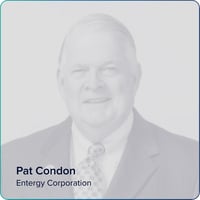
Pat Condon joined Deloitte & Touche LLP as a partner in 2002, where he provided various consulting and attest services to clients and held a number of regional and national leadership positions until his retirement in 2011. Prior to joining Deloitte & Touche LLP, he was a partner at Arthur Andersen LLP where he provided similar services to clients and held similar leadership positions.
In addition to serving on the board of directors and chairing the audit committee of Entergy Corporation, a Louisiana-based integrated energy company, Pat also serves on the boards of Urban Gateways, a Chicago-based 501(c)(3) organization whose mission is to educate and inspire young people by delivering high-quality, accessible arts experiences that advance their personal and academic growth; and the Brother Rice High School Foundation, also a Chicago-based 501(c)(3) organization. From May 2012 until its December 2015 sale to The Kroger Co., he also served as an independent director and chair of the audit committee of Roundy’s, Inc., a leading Midwest grocery company located in Milwaukee, Wisconsin. And from March 2012 to May 2017 he served on the board of directors and chaired the audit committee of Cloud Peak Energy, a Wyoming-based coal producer.
Host: David Greenberg
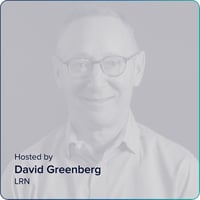
David Greenberg serves as Chair of the Governance and Risk Assessment Committee and a member of the Audit Committee of International Seaways (NYSE: INSW), one of the largest global crude oil and petroleum tanker companies. Mr. Greenberg’s previous board experience (2006 to 2016) was as the independent director – and member of both the Audit and Compensation Committees --of APCO Worldwide, a private communications and government affairs consultancy and as a director (2013 to 2016) of Clean Tech Group, which creates opportunities for industrial companies to invest in innovative, clean technology. He also served for 5 years as Chairman of the Board of Trustees of The Keystone Center, a Colorado non-profit that brings together oil, chemical and pharmaceutical companies with leading NGOs to find solutions to complex public policy challenges at the federal and state levels.
Greenberg is currently Managing Director of Cortina Partners LLC, a private equity firm that owns companies in the air medical, addiction treatment, bedding, textile and outdoor recreation industries and is CEO of Acqua Recovery, a residential drug and alcohol addiction center. He also advises boards and executive teams on strategy, compliance, leadership and culture as a Special Advisor for LRN Corporation, and from 2008 through the end of 2016 was a member of LRN’s Executive Committee. For 20 years prior to 2008, Mr. Greenberg served in various senior positions overseeing government affairs, corporate affairs, communications and strategy at Altria Group, Inc. – then the parent company of Philip Morris USA, Philip Morris International, Kraft Foods and Miller Brewing – culminating in his role as Senior Vice President, Chief Compliance Officer and a member of the Executive Committee. As one of five senior vice presidents of the corporation, he served on the Management Committee, which oversaw all strategy and company operations. He was also a principal architect of the company’s very successful efforts to end the ‘tobacco wars’ which threatened the company’s very existence. Earlier in his career, Mr. Greenberg was a partner in the Washington D.C. law firm of Arnold & Porter and also served as Legislative Director and General Counsel of the Consumer Federation of America. He attended Williams College and has JD/MBA degrees from the University of Chicago.
Greenberg has testified before the U.S. Congress, the European Union, the Israeli Knesset and other governmental bodies over two dozen times and has appeared on ABC Nightline, the CBS Morning News, BBC Morning, and the PBS News Hour, and has spoken at leading events for CEOs and boards.
Principled Podcast transcription
Intro: Welcome to The Principled Podcast, brought to you by LRN. The Principled Podcast brings together the collective wisdom on ethics, business and compliance, transformative stories of leadership and inspiring workplace culture. Listen in to discover valuable strategies from our community of business leaders and workplace change makers.
David Greenberg: Audit committees play a central role in ensuring the financial integrity of public companies, and consequently serve as a backbone of overall board governance. They also provide a great deal of the oversight for boards on issues like corruption, fraud, and cybersecurity. But how do audit committees impact the culture, ethics, and compliance of major companies?
Hello, and welcome to another episode of The Principled Podcast. I'm your host, David Greenberg, LRN's former CEO and now special advisor. I also serve as a board member, governance committee chair, and sit on the audit committee of International Seaways, one of the largest global oil tanker companies.
Today, I'm joined by Pat Condon, audit committee chair and board director of Entergy Corporation, an integrated energy and utility company serving millions of customers in Arkansas, Louisiana, Mississippi, and Texas. We're going to be talking about the various issues and priorities of board committees and how they help shape a board's impact on corporate culture. Pat is a real expert in this space, having served as a director and audit committee chair for both Roundy's, a leading grocery company, and Cloud Peak Energy, a major U.S. coal producer. A former Big Four accounting partner, Pat has also served on the boards of 501(c)(3) organizations such as Urban Gateways and the Brother Rice High School Foundation. Pat, thanks for coming on The Principled Podcast.
Pat Condon: David, I'm happy to be here. As you and I have talked, the role of the audit committee has certainly evolved over the years. I go back long enough that when the audit committees first started, the role was a very narrow one. And we're here to talk about some of the nuances that have evolved over the years, so I'm happy to be here.
David Greenberg: That's great. And before we dive in too deep, let's just set the stage. Why don't you describe, based on your experience, the overall architecture of what audit committees do and the role that they play?
Pat Condon: Well, the role is oversight of financial reporting and the related internal controls behind all of that, the review of filings, earning releases, et cetera. A major role that's evolved is risk oversight, and we have oversight of the independent auditor. Ethics and compliance taking on a greater role than it probably had years and years ago. Oversight of internal audit, a mission-critical role. Interactions with the other committees of the board, as well as the management of the company. And some of the committees these days, there are overlaps and responsibilities, and so that's an important part of the job. And then any kind of external communications that we might do, which is typically in filings with the SEC or otherwise.
All of that, by the way, and we're here to talk about culture. And all of that plays a role in company culture, as you can well imagine. Just a simple thing like internal controls, well, culturally is the company weak or strong? So it's a mission-critical role, is the assessment of company culture as it relates to these and many other things.
David Greenberg: Pat, how have you seen the role of the audit committee and the chair change over the time you've been doing that kind of job?
Pat Condon: As I said, it's become much broader in scope than it was originally, and it's also much more overt, in a sense, with things like organizational health. When we look at ethics and compliance, for one. We look at organizational health, workplace violence, employee relations. And you get down to things like what's happening as a result of changes in the workplace? Which there have been over the last two years, as we all know, very significant changes.
David Greenberg: You've mentioned culture and ethics a couple times. You and I were both participants in the recent Tapestry-LRN Summits on ethics and culture. Tell us how you think about corporate culture and how that informs what you do as a board member and audit chair?
Pat Condon: I think it's a critical role of every board member to do his or her assessment of company culture. Not only while you're a board member, but you think about going onto a board, I think an important part of your deliberations is what does the culture feel like? But to me, it's a very mission-critical part of a company's existence. Things like the new workplaces they talk about at the future of work, for example, they are part of an evolving culture which I think we all have to pay pretty close attention to. And while that was changing some over time, I think the pandemic has accelerated the change. We can certainly see that in who's in the office when and who's doing what and how. Introduction of robotics and other things into the workplace, really changing... They call that the future of work, but it's pretty real and it's happening now.
David Greenberg: Would you say that from when you started as a board member until now, we've moved to a point where there are more discussions about culture, ethics, and the outside world, than when you began?
Pat Condon: I think we talked about it when I began. And again, I spent a lot of time in boardrooms back in my old profession as well, so I can include that. But the volume is much louder now than it was before. There are any number of reasons for that, but you can see it in society as well. And most companies, they do reflect society. To be successful, you better reflect on society. And so as things are changing in the world in which we live, they're changing in the boardroom as well. Again, you come back to if you're going to be successful as a company, as a board, et cetera, et cetera, the culture plays such a mission-critical role in that for the long term. You can be short term successful with what I'd call less desirable culture, but I don't think you'll last long.
David Greenberg: So one of the biggest parts of our audience for this podcast are chief ethics and compliance officers and their teams. As an audit chair, what's your advice to them on how best to build a strong relationship with the audit committee and its chair?
Pat Condon: Relate. So, I'm not a shy, retiring wallflower, nor or I think most of... So the key is to talk. And maybe it's me, but... And of course, in my capacity, I need to avoid being management. On the other hand, healthy discussions with the officers, including the chief compliance officer, I'm pretty frequent in that. And again, I come back to this two-dimensional world we're living in right now. It's much tougher to make some assessments, and therefore my conversations have probably picked up the pace a little bit because of the lack of face-to-face time that we could spend together. Whether it's over dinner or lunch or anything, those are times when you can get a good three-dimensional judgment of character, culture, et cetera.
David Greenberg: When you think about the chief ethics and compliance officers you've worked with, how's the board view them? Do they have the status of other senior officers, or more importantly, do they have the status they need to be effective?
Pat Condon: I can't speak for the world, but I can tell you that my experience right now is yes, without question. The relationship to the C-suite... In fact, sitting in the C-suite is probably a good way to put it. And then the board is very, very, very, very interested in what they report out. And whether it's the results of employee health surveys or anything else, they all play a role in that. And so I would say that... Well, certainly every one of our board meetings, we get a report, and I will have looked at it closely beforehand, had a discussion about it.
David Greenberg: Do you have a relationship with the chief compliance officer in between board meetings and committee meetings?
Pat Condon: Probably not as much as the internal auditor, but yes, I am not afraid to pick up the phone, and I've certainly told her that if she has any reason whatsoever to call me, to pick up the phone. So it's a good relationship, and I think it needs to be. I mean, it needs to be a crystal clear two-way street.
David Greenberg: Do you see, for example, a good level of cooperation between say internal audit and ethics and compliance, or can you tell from where you sit?
Pat Condon: Yes, absolutely. I mean, I think it's, where necessary, there's parts where the roles overlap and become... Collaborative is the wrong way to put it, but each has a role to play. So at least in what I'm observing, yes, there's a relationship and it's a strong one, as well as with the other members of the C-suite.
David Greenberg: So, Pat here's what I think is one of the tougher questions for audit chairs and audit committee members. I sit on the audit committee at International Seaways, and the agendas are just crushing in terms of absolutely mandatory, legally required things that have to be done. So my question is can audit committees pay enough attention to corporate ethics, culture, and compliance? And if your experience with that says the answer is yes, talk a little bit about how you've accomplished that.
Pat Condon: Well, I try to leverage as best I can all of those things, so I'm pretty active when it comes to pre-meeting material interactions, but we don't have... The agendas are busy, and especially depending on the time of year. But there's a lot of prep that goes into the meeting on both sides, and optimizing the prep certainly helps, as well as making the reports tell the story they need to tell, but do it in a succinct way. And that frankly, is evolving. Whether you're dealing with ERM or compliance, the nature of the way the reporting is going is I would say evolutionary and probably always will be.
But the nature of, for example, corporate risk has become much more sophisticated. Part of it's technology, part of it's the work. So you know as well as I and pretty much any other director, how much more education we do these days than we did maybe before. But it's incumbent upon the director, in my view, to keep himself or herself current when it comes to rules, regulations, and the state of the art as it relates to all of those roles.
David Greenberg: You said that the reporting in this area and other areas is evolving. Are you feeling like it's becoming more strategic in nature and the board members are getting a deeper sense of what's going on, or not?
Pat Condon: I believe so. And again, I think the fact that we all... There aren't many shy, retiring wallflowers at the board level, and so where anybody feels... Sometimes the board, somebody will call me directly and ask about things. But I think everybody's invited to weigh in on the nature of the reporting that's done. And the questions, you can tell by the questions, that the interest level is high in this area.
David Greenberg: One of the series of letters that I hear from almost every board member I talk to is are the leters ESG? So how is your board dealing with ESG? Is it an audit committee matter, a full board matter, someplace else?
Pat Condon: E, all the above. And from things like... Just take an example: what's reported in the 10K. Typically, that would not have fallen anywhere in the... So sorting out who's going to review it. What, for example, the external auditor might do with some of that. Because the nature of a lot of that reporting is it's things that weren't there before, so all of a sudden it was how do we know that what's going in there is correct? Who's looking at it? So we know that's been parsed out and that it's being done.
But part of it is... I come back to what does your company believe its mandate is? So for utilities right now, all of that stuff is incredibly relevant. So whether it's how are we producing every kilowatt hour, whether it's interactions with the regulators, whether it's what's the nature of our workforce, what's the composition? How is it by level of the organization? I mean, we do look at every one of those things. And so I think that at least the companies with which I'm familiar, they had all... Before it became a public mandate, it was evolving in the boardroom anyway.
David Greenberg: So you and I have been involved in a bunch of conversations about corporate culture, and particularly how hard it is for boards to get a feel for it and how hard it is for companies to have good measurement and metrics. What's your view on how boards can play a role to focus management's attention on this so that when we talk about culture, we're not just guessing at it, but we have have some measures that can be tracked and management can influence them over time in the right direction?
Pat Condon: I think when it comes to the measures, we are at an evolutionary point, because they've been squishy at best historically. I do think that more and more companies are having independent reviews of their culture. Having said that, there's so many different aspects to it. Again, I come back to as a board member, I would take every opportunity I had to, whether it was a corporate lunch, a dinner, and thank goodness the companies with which I've been involved would invite folks who were not part of the C-suite.
And in addition to the social part of it, I would do my best to ask and gauge the responses about are we culturally directionally correct? Whether it's safety, employee relations, any number of things that embody culture, that was my way of assessing it. I don't think the metrics are... How would I put this? We have generally accepted accounting principles. I don't think there are any generally accepted ethics principles that you can say that you would... On the other hand, there are companies who do go in and make those cultural assessments.
So I think it's evolutionary. I think all you can do is make sure that... And you can listen to the management team and draw your own conclusions about whether culture's important in the C-suite. In my case, fortunately it is, and we do frequently have conversations about culture itself.
But you get into things like... And you know this as well as I. When you got a lot of contractors, you can set the ground rules, but they better be reflective of your culture, and you better be prepared to impose disciplines when things evolve in a way other than you would like them to. And most companies do use a lot of contractors, but they can influence culture if you're not careful. And if it's positive, it's great. If it's negative, that's something you really need to look for.
David Greenberg: So stepping back a bit and reflecting, how do you see the evolving expectations of stakeholders as it relates to major companies, and what's that mean for boards?
Pat Condon: The question is, the first thing is, who are your stakeholders? And I think that's also in an evolution, because corporations are more and more considered, I'll call them citizens, than they might have been before. And so I think the world of ESG, people who might not hold a share of the company still have a reaction, and they can influence you either in your stores or... On the other hand, if you're a necessity, whether if you're a power company or... The stakeholders, the customer side of it's mission critical. So I think the stakeholder evolution, if I can put it that way, is healthy for society, but it's imposing burdens we haven't experienced before. But having said that, I am watching mostly positive reactions to that.
Now, it doesn't mean that everybody who says something about your company is going to portray their perspective. They're not necessarily going to be factual in what they have to say. And so there are times when you're out there talking about, maybe indirectly, that message and what's incorrect about it, or just sometimes you got to be direct. How would I put this? Social media's probably created a lot of perspective that didn't exist before, because pretty much anybody can have an expert opinion now, and that's sad, but true.
David Greenberg: Yeah. Thinking about all that, what do you think boards need to change to keep up with these evolving expectations?
Pat Condon: I think you just got to have your ear to the ground at all times, as well as your hands, and make sure that you're in sync. I think you can look at other companies and what they're doing. Certainly, you need to be in communication with your stakeholders virtually continuously. And evolve as you need to, because just as human nature has evolved, so has the corporate nature, and it will continue to do so.
David Greenberg: Pat, have you seen on your boards pressure, expectation, for the CEOs to take a position on social issues and things going on in the outside world?
Pat Condon: I think my experience is maybe a fortunate one, but the answer to that is yes, and I believe it's as it should be. And it can be a real strength to a company where you've got a CEO who's not just aware, but is a believer, if I can put it that way.
David Greenberg: So, Pat, any closing thoughts you want to leave with our audience about directors, boards, audit committees, how to work with them?
Pat Condon: The world of cyber is not going to go away, and it's something we all need to be tuned into. And you see it every day on the news about invasions of your personal space, but the corporate side, it's no different. ESG, mission critical, and I think we just need look to excel in that area. I forget who it was, eternal vigilance is forever the price of freedom, but eternal vigilance is something that you just got to be tuned in.
I think the future of work, and we didn't talk about the intergenerational differences as it comes to that, but those are all things that are very, very relevant. And there's lots of things published on it. There's lots of things you can attend on it. But I do think it's something you need to tune into, because the pandemic and the change in the workplace environment, and I continue to add in the introduction, almost the virtual concurrent introduction of robotics in certain parts of the business are really going to change the future of work in a way that we need to stay close to.
David Greenberg: Well, I think that's a great place to wrap up for now. Pat, it's been really great having you on the podcast. We thank you and hope you'll come back again, because you certainly outlined a number of issues that are worth talking about.
Pat Condon: I'm happy to, and I have to say I enjoyed preparing for this with you, so look forward to doing it again.
David Greenberg: That's a wrap.
Outro: We hope you enjoyed this episode. The Principled Podcast is brought to you by LRN. At LRN, our mission is to inspire principled performance in global organizations by helping them foster winning ethical cultures rooted in sustainable values. Please visit us at lrn.com to learn more. And if you enjoyed this episode, subscribe to our podcasts on Apple Podcasts, Stitcher, Google Podcasts, or wherever you listen. And don't forget to leave us a review.
Be sure to subscribe to the Principled Podcast wherever you get your podcasts.
